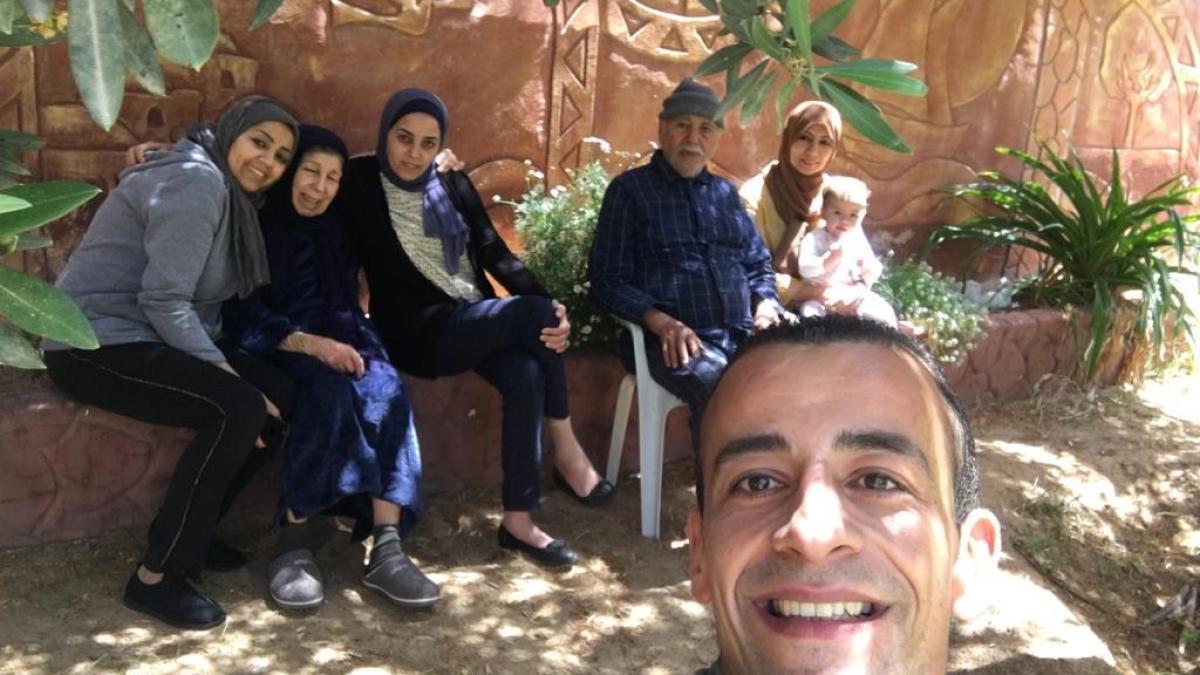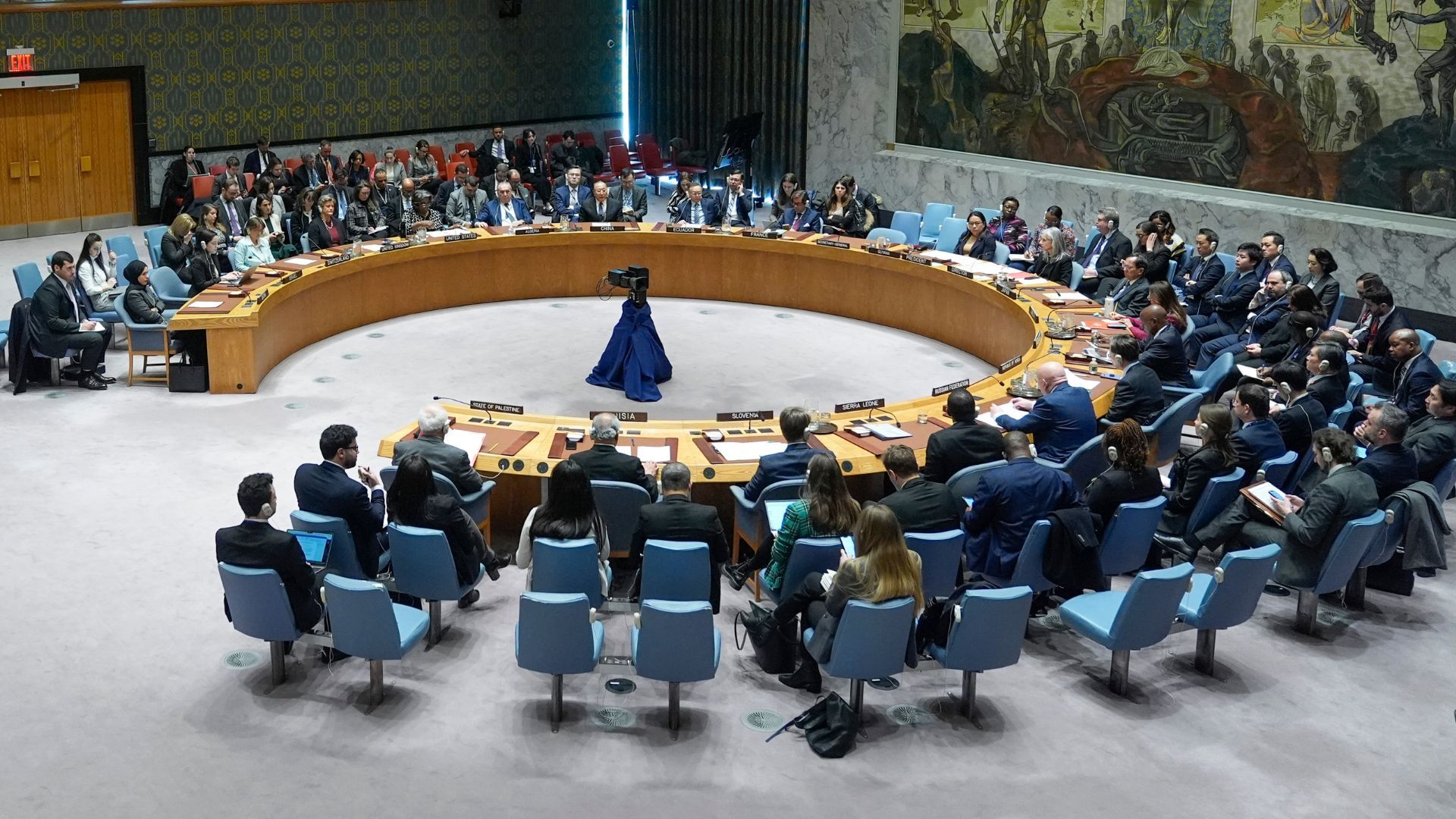
On October 8, Eman Radwan called her parents from the West Bank and spoke to them one last time. They were in the Gaza Strip, where Israel had launched a relentless bombardment following Hamas’ deadly attack on Israeli villages and military outposts the day before.
Radwan was unable to visit her parents regularly for years because, with a few exceptions, Israel barred Palestinians from moving between the West Bank and the Gaza Strip.
Israel ordered all Palestinians in Gaza to flee south, but Radwan’s parents were unable to leave their home. They lived in Gaza City, near the Islamic University, which Israel attacked with airstrikes on October 11th.
Her father was caring for her mother, who suffered from heart disease and needed oxygen to breathe – making it impossible for them to walk. The next day, a bomb hit their villa, killing them both, along with their youngest brother and a young man who helped them with housework.
“My relatives first found my brother Hassan and my mother.
“My mother was missing her hand, limbs and head,” Radwan told Al Jazeera, trying to hold back her tears over the phone. “Two days later, [they] I searched for my father under the rubble with a tractor and we found his [corpse]to.”
Radwan is one of thousands of Palestinians living in the West Bank and whose families live in Gaza. The restrictions on movement imposed by Israel on Palestinians within and between the two occupied territories meant that she had only seen her parents and siblings a few times in the last 20 years.
She says she still can’t believe she’ll never see her mother, father or brother again.
“Many of the family friends and relatives who helped us bury my family were later killed [by Israeli bombardment]“Also,” Radwan told Al Jazeera.
Misplaced hope
Many Palestinians separated from their relatives in the Gaza Strip as a result of the Israeli occupation fear that their relatives could die.
Fatima Abdallah* and her husband – both from Gaza and whose family name was changed for fear of reprisals – moved to the West Bank four years later in 1997 the Oslo Accords signed and expressed the hope that there would be a Palestinian state.
They had just completed their studies in the United Kingdom and had high hopes that a Palestinian state would be established in the following two years, as promised in the peace agreement.
But Abdallah’s mother was already a refugee herself and was forced into Gaza during the Nakba, when hundreds of thousands of Palestinians were forcibly displaced to make way for the creation of Israel in 1948. They lived in various territories.
“She told me that she would have a better chance of seeing me if I moved to Canada than if I moved to the West Bank,” Abdallah recalls.
Her mother did not believe Israel would allow Palestinians to form a state.
According to the Oslo Accords, the West Bank and Gaza were to be treated as a single territorial unit. In practice, Israel tightened its illegal settlements and required West Bank Palestinians to obtain permission to visit Gaza.
A Palestinian Intifada – which comes from the Arabic word “shake off” – erupted on September 28, 2000 in response to Israel’s increasing occupation. In the first five days, 47 Palestinians and five Israelis were killed.
Israeli restrictions tightened until it was almost impossible for Palestinians in the West Bank to visit relatives and loved ones in Gaza, and vice versa.
In exceptional cases, Palestinians could be granted permission to visit a dying family member or to participate in an event or activity as an employee of an international non-governmental organization.
After Hamas, restrictions were tightened even further won an election in Gaza in 2006 and retained control of the Gaza Strip despite being attacked by the dominant Palestinian political party, Fatah. The following year, Israel imposed a crushing land, air and sea blockade on Gaza with the help of Egypt, which controls the Rafah crossing into the enclave.
Human rights groups describe Gaza as an “open-air prison” because hardly anyone is allowed to enter or leave the area. Abdallah said she was unable to see her family in Gaza between 2006 and 2018.
“An entire generation of my family—nephews and nieces—grew up into teenagers and college graduates without having much personal contact. I missed a whole part of their lives and my children don’t know who their own cousins are in Gaza,” she told Al Jazeera.
I’m dying to see my family
According to Munir Nuseibeh, a Palestinian human rights lawyer and civil society activist, until October 7, Palestinians could typically only see relatives from Gaza if they were granted permission to receive medical treatment in the West Bank, occupied East Jerusalem or Israel .
Over the past decade, he has only seen his relatives from Gaza when they needed urgent surgery.
“Basically the only chance for me to see any of them is if they have cancer,” he told Al Jazeera.
In August 2023, the World Health Organization announced that 1,492 people had received medical permission to leave Gaza for treatment out of 1,851 applications that month.
In 2022, Abdallah visited her sister and mother because the former had a tumor that doctors feared might be cancerous (they later discovered it was benign). The only person allowed to accompany Abdallah’s sister to the test in the West Bank was her elderly mother.
Both Nuseibeh and Abdallah now fear that their sick or elderly relatives will die under the Israeli bombardment or stranglehold on Gaza. Since October 7, Israel has tightened the blockade by cutting off food, water and electricity supplies to the 2.3 million people in Gaza, most of whom are now living there crowded together in the south the enclave.
UN experts and hundreds of legal and conflict scholars have warned that Israel’s campaign in Gaza amounts to collective punishment and could be classified as genocide.
“My understanding of this genocide is that it actually targets civilians and civilian life in so many different ways. We have had [in our extended family] several victims.
“Our immediate family has managed to survive the situation so far. But they were all expelled from Gaza City to the south,” Nuseibeh told Al Jazeera.
Abdallah’s 80-year-old mother also left her home and headed south, where Israel is bombing despite telling Palestinians early in the war that the region was safe.
After Israel resumed bombing on December 1 to break a seven-day ceasefire, the director general of the government media office in Gaza said More than 700 Palestinians were killed within 24 hours.
“My mother was just four years old when the Nakba happened and she can’t take it anymore,” Abdallah said. “It’s not even the bombing or the war, but the fact that she left her homeland again.
“She feels like her life is ending the same way it began.”
*Name changed to protect identity






Recent Comments